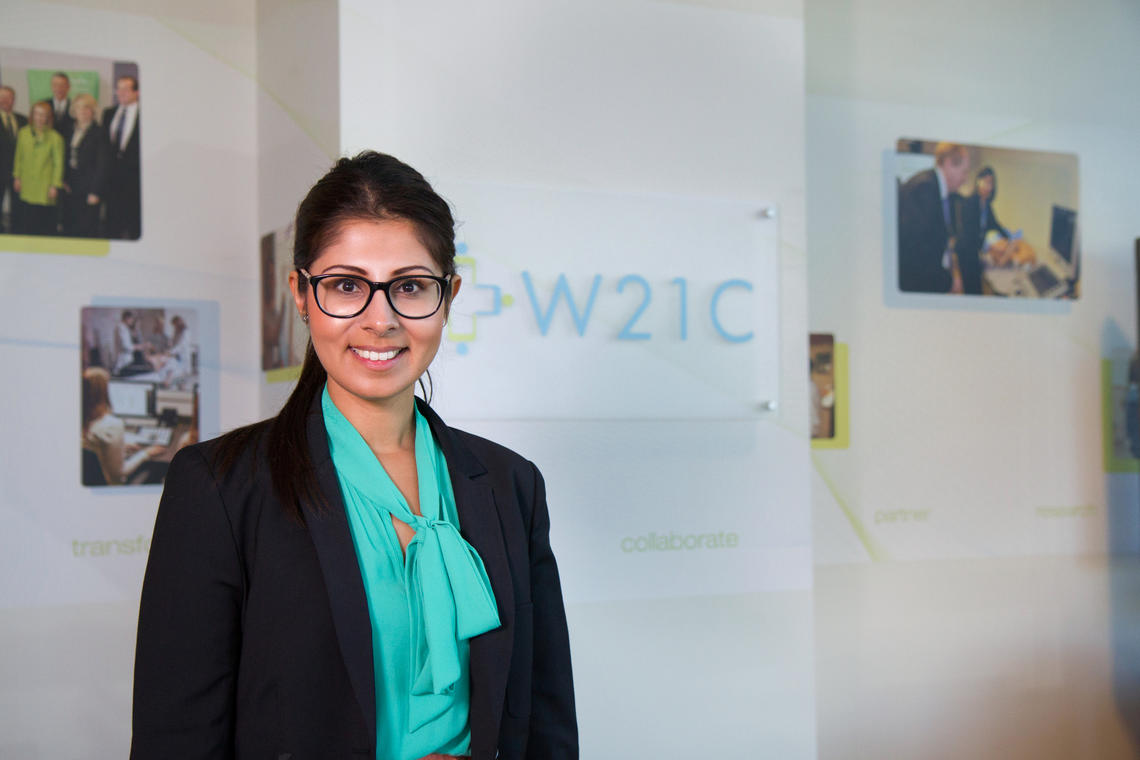
Alyshah Kaba is a PhD candidate in the Department of Medical Education and Community Health Sciences
Riley Brandt
Sept. 30, 2013

Alyshah Kaba is a PhD candidate in the Department of Medical Education and Community Health Sciences
Riley Brandt
Alyshah Kaba wants to make a world of difference in health care.
Winning a Vanier Canada Graduate Scholarship is an important trajectory toward that goal, she says. “I’m humbled to be recognized for my leadership capacity and my vision to change our health-care system,” says the PhD candidate in the Department of Medical Education and Community Health Sciences at the University of Calgary.
The scholarships — $50,000 a year for up to three years — are given to “world-class doctoral students” to establish Canada as a global centre of excellence. Eight researchers at the University of Calgary were awarded Vaniers this year.
Kaba takes the global emphasis seriously. Her goal is to improve the way health professionals are educated on an international level.
The 29-year-old, who completed her medical training and Masters in Global Health at McMaster University, got her first glimpse at the impact of education on health-care outcomes while doing medical work in Nairobi, Kenya, in 2009, where she developed a family planning clinic and worked in obstetrics at the Aga Khan University hospital.
Her doctoral research looks at the way doctors and nurses communicate and how that impacts patient safety and care.
“She has a high level of energy, tremendous enthusiasm for the research, and never-ending perseverance,” says her PhD supervisor, Tanya Beran.
Kaba’s “methodologically tricky” study involving medical and nursing students has generated a lot of interest, as it sheds light on the negative impact of peer pressure on interdisciplinary health-care teams. Peer pressure can interfere with honest, respectful and efficient communication among team members on matters of patient care, Beran says.
“Alyshah’s research, combined with our previous studies, shows irrefutable evidence that many people would prefer to report inaccurate information rather than stand out as different from the rest of the peer group by reporting contrary, although accurate, information.”
Kaba says her findings point to a need for interprofessional education early on. “We’re providing the initial, seminal evidence that, if we don’t teach students how to communicate together in teams, then as future health-care providers they may be unable to speak up in the face of medical errors and patient safety concerns.”
The Vanier scholarship will help accomplish her next goal to take her project “large scale” by sharing the findings at international conferences, networking with leaders in patient safety and quality of care and seeking to have her results widely published.
Building a case for interprofessional education and developing education curriculum on a global scale “is where my passion lies,” she says.
“The project is super exciting because it provides empirical evidence that suggests that team communication and challenging peer pressure don’t necessarily come naturally for nursing and medical students. They’re learned skills, and training in these human factors skills must become a priority in our education system.”
Having strong supervisory support and being part of the team at a “hub of innovation” like the University of Calgary’s W21C, will help her achieve her global vision, she says. “I believe that if you surround yourself with leaders, you will become a leader in your field.”
As for the scholarship: “A lot of doctoral students are very bleak about future career opportunities and I think the Vanier doesn’t allow you to do that. It opens almost too many opportunities, where you really need to cultivate your vision as a leader and keep that at the forefront.”